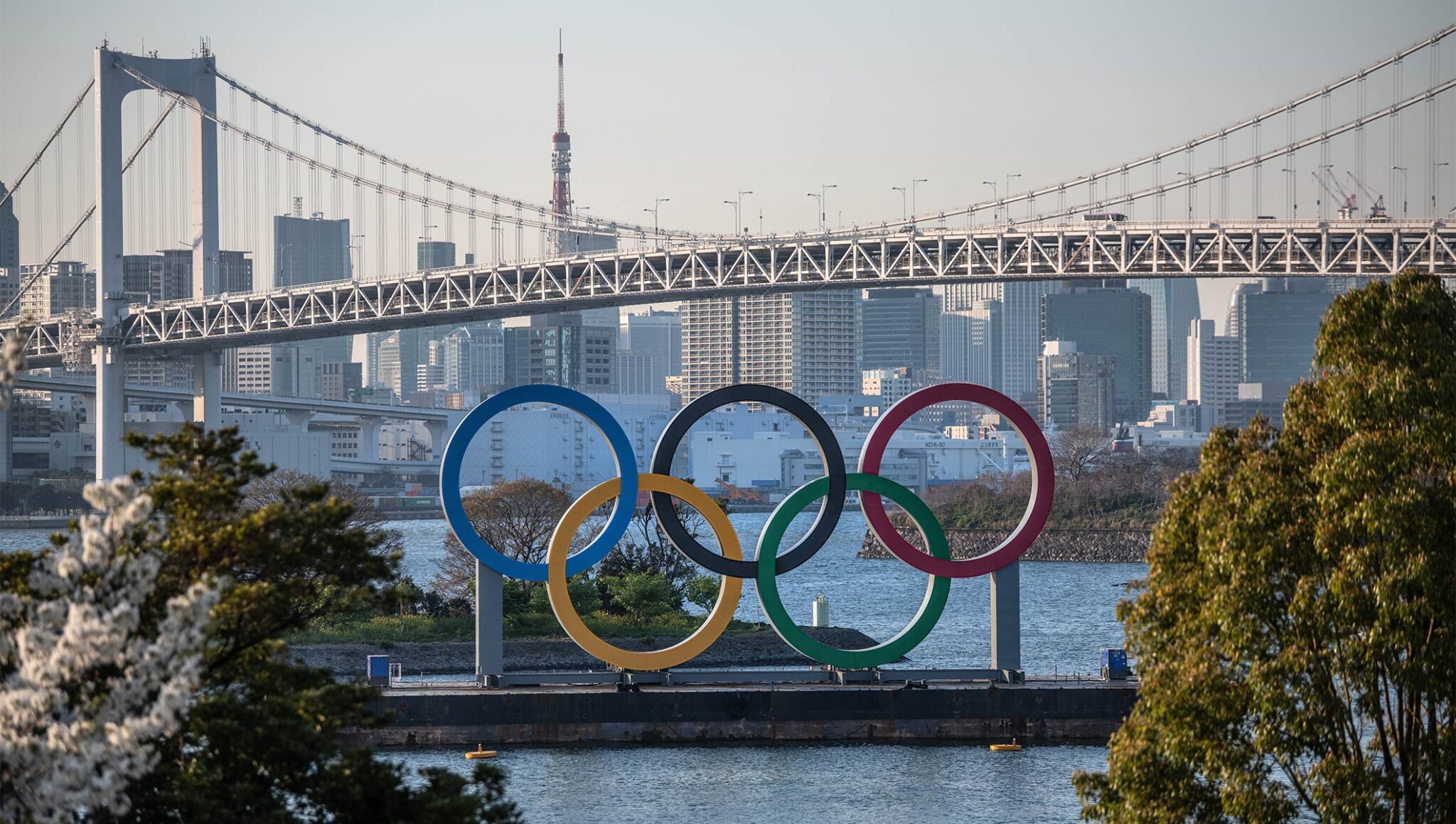A recent Japanese government audit put the cost of Tokyo 2020 at $25 billion, more than triple Tokyo’s $7.3 billion budget at the time of its 2013 bid. The year-long delay is expected to add another $3 billion, with Japan and the IOC still wrangling over who will pick up that tab.

Tokyo 2020 seeks to survive the Olympic curse
Organizers are preparing for a simplified 2021 Summer Games that prioritize health safety but will inevitably also hit sponsors and spectators
“It’s a problem that’s happened every 40 years – it’s the cursed Olympics,” Japan’s Deputy Prime Minister Taro Aso remarked before a parliamentary committee last March.
Aso had a point. The 1940 Summer and Winter Olympics, scheduled to be held in Tokyo and Sapporo, respectively, were canceled due to World War II. Forty years later, the United States and 64 other countries boycotted the 1980 Moscow Summer Games to protest the Soviet invasion of Afghanistan.
Now, as we approach the one-year countdown to the postponed and rescheduled Tokyo 2020 Summer Olympics, how will the “40 year curse” affect Tokyo 2020 and beyond?
Here’s a look at the sorts of magic spells, incantations and elixirs that the International Olympic Committee (IOC), the Tokyo Organizing Committee (TOCOG) and Olympic stakeholders are conjuring to counter the curse and permit Tokyo 2020 to be held in 2021.
Costs and revenues
Any sane person has to admit that gathering people from all corners of the earth, putting them in close quarters for a few months and then sending them back where they came from is about the worst thing one could do in a pandemic.
Planners originally expected for Tokyo 2020 11,000 athletes, 7,000 officials, 25,000 media representatives, 80,000 volunteers, 900,000 daily spectators and an estimated 10 million visitors.
While the IOC and TOCOG say that they will put health and safety first, quantities of profit, politics, pride, and institutional inertia at stake are too great to permit cancellation.
On the cost side, the Olympics is a multi-billion-dollar undertaking. Expenditures for the Beijing 2008 Summer Games ran to US$40 billion, while the 2014 Sochi Winter Games are estimated to have cost $50 billion.
On the revenue side, Tokyo 2020 has generated record domestic sponsorship of more than $3 billion, three times as much as any previous Summer Games. As can be seen by Airbnb’s recent eight-year, $500 million deal covering five installments, the IOC receives approximately $100 million per Olympics from each of the 14 highest level sponsors (called The Olympic Partners, TOP for short), netting a cool $1.4 billion for Tokyo 2020 alone.
Global broadcast rights, which constitute three-quarters of the IOC’s income, are $4.5 billion for the current Olympic cycle (2017-2020), with NBC spending over $12 billion to secure Olympic broadcasting rights from 2012 through 2032.
One can’t help but feel sorry for Japan, which not only counted on the Olympics to finally close the chapter on its post-1990s economic and social malaise but also hoped for a $300 billion boost to the economy.
Adding insult to injury are recent surveys showing that nearly four in five Japanese don’t think Tokyo 2020 can be held, and that half of Tokyo residents do not even want the Olympics.
Formula for simplified games
TOCOG has outlined three central principles for a simplified games – providing a safe environment, minimizing costs and ensuring safety and sustainability. This will translate into a scaling back of Olympic activities and operations, fewer services for athletes and officials, a reduction in spectator numbers and fan experiences – and losses for sponsors.
The torch relay, which was supposed to start in Japan on March 26, was the first casualty of the postponement. The torch relay traditionally drums up grass-roots support and gives the people of the host nation a sense of Olympic ownership and participation. Its route and duration will most likely be shortened, and restrictions will be placed on the number of people lining the route and the extent of the traditional end-of-day celebrations.
Original article 13.07.20 on the Asia Times website
To view the original article click here
© The Fan Experience Company 2020
